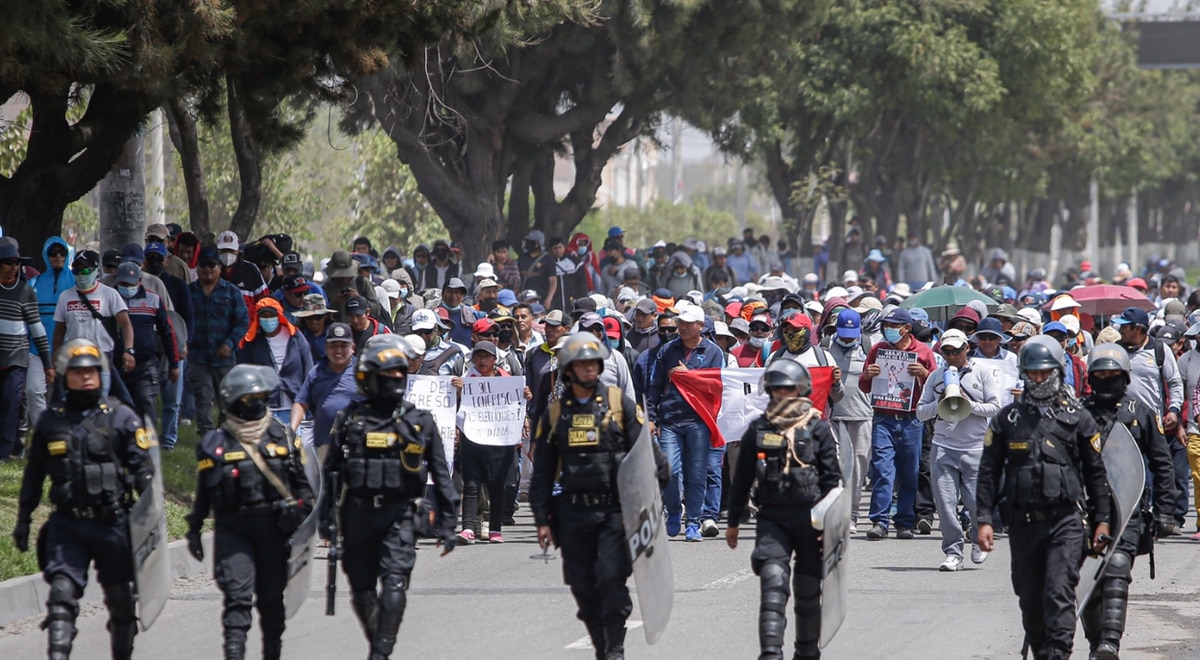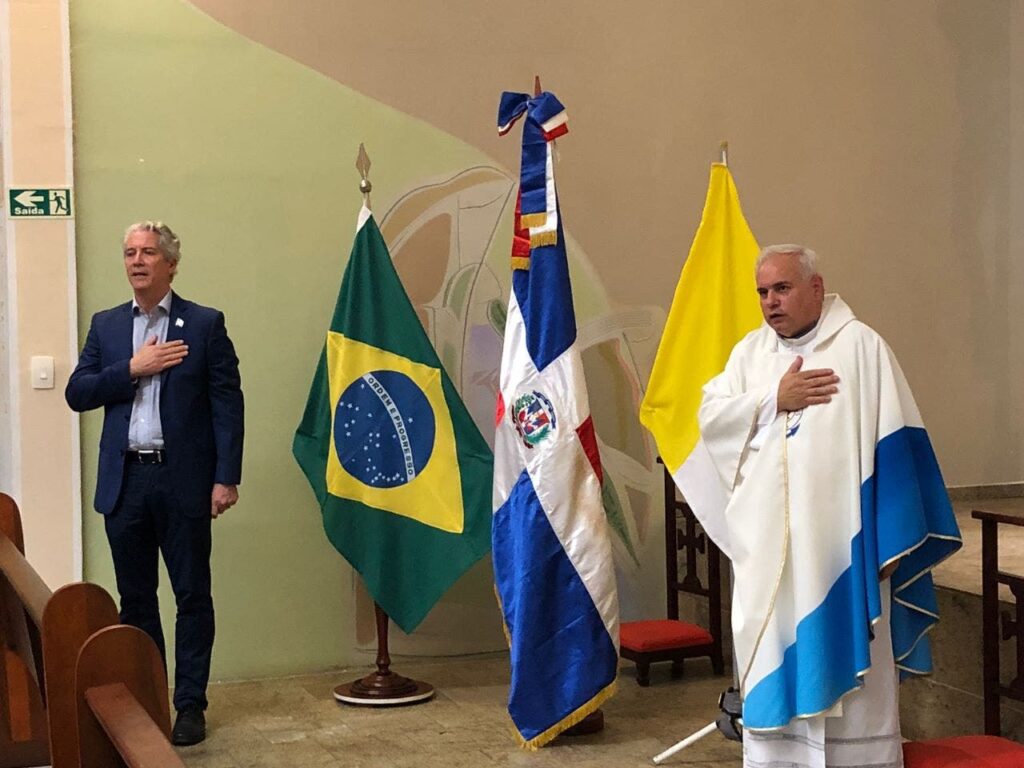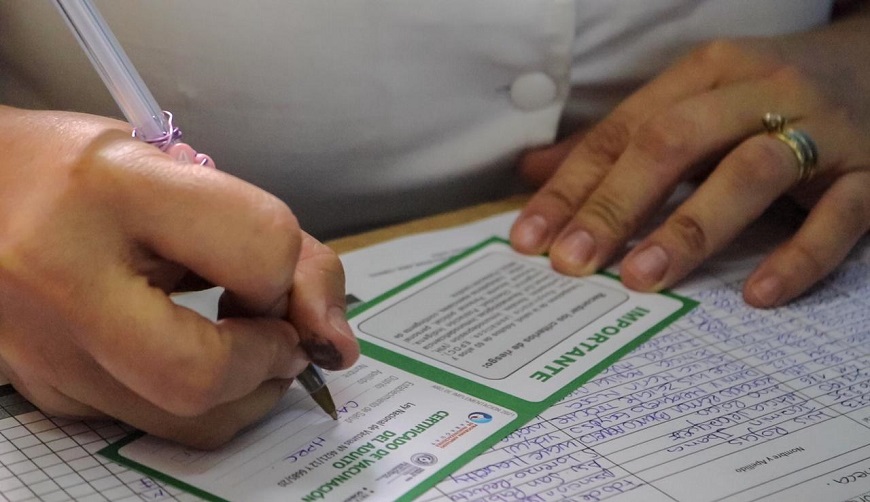Advancing elections is the path with the most consensus
By: Rolando Luque, Ombudsman’s Office
Dialogue in these circumstances is very difficult. In the midst of the crisis, those who appear the least are people with a vocation or interest in dialogue, because we are in the midst of the protest, which on Thursday was expressed in a march of around 7,000 people. I was there and I didn’t see any sign asking for dialogue.
there may be three dialogue efforts, led by civil society organizations, that try to bring leaders together to listen to them. That doesn’t solve the problem, but it can be pacifying.
A second effort may be led by regional governorswho are democratic actors whose duty is to establish a bridge between society and the State.
And the third effort is insist on the space of the National Agreement and strengthen it with the participation of other actors. It is very valuable because it has a plural participation. That is where progress could be made in the political solution, which is in the short term, and the formula that has the most consensus at this moment is the advancement of elections, but there is a discrepancy about the term, and it must be discussed at once if they will be this year or 2024.
We must create minimum bases to get closer
By: Jennie Dador, Nad Coordinator
Conditions must be created to establish dialogue, which involves demilitarizing the territories, sincerely asking for forgiveness and not as has been done up to now, pointing out political responsibility and that it be accompanied by changes in military command in the areas where the massacres took placeas well as the heads of the Defense and Interior ministries.
And not to think that you are going to dialogue with the traditional idea of political representation that we had, where there were parties that were the channels of society, but There are organizations and movements, as well as local leaders from different sectors and unions, who can be social or environmental movements, or community banks or merchants. There are different groups according to each territory.
And you have to incorporate the regional governments that are new and are not stained with corruption.
But the dialogue has to be in each region, not bringing them to Lima, and in spaces that generate trust.
Also, we have to put an end to the ‘terruqueo’because they do not accept in any way that they are equated with terrorists.
The dialogue works with a real desire for change
By: Lorenzo Castillo, National Coffee Board
There is a power structure that concentrates an approach of discrimination of the popular economy, and concentrates it in the power groups that are traditional managers of the State, and that are in Congress and the Executive, that have a repressive approach and not one of dialogue . Both have to understand the historical reasons for the protests.
To start the dialogue, it is necessary to bring forward the elections for this year, as a sign of willingness to change.. Dialogue works when there is a real will to change. In addition, it is urgent that a working group be established to implement historically unattended demands that have to do with better living conditions from the sustained development of agricultural production, and that are under the great mobilization of peasants.
In the case of coffee growers, we have the issue of tax legislation and the cooperative act, as well as the reconversion of coffee farming, which allows adaptation to climate change and exports of zero carbon coffee to Europe. Last year the price of coffee was good, but by 2024 they will drop and that will once again generate a crisis for the producers of the main crop in the Amazon.
We must listen to the historical claims of the population
By: Pedro Barreto, Cardinal of Peru
It will help a lot if we can all learn to listen. There are many families who are mourning the death of their loved ones and hundreds of injured. All this makes us understand that we have to learn to dialogue, listening to that population that historically has been neglected in their just claims.
But there is a fundamental requirement, and that is that we are willing to dialogue, to give in where we can, and we must dialogue with respect and seek together the truth, which is not mine or others’, but everyone’s.
It is very important that society as a whole act, since the country’s problems cannot be solved only from the Executive and Legislative branches. Together we must find a solution that is best for the country. At this moment we create borders and walls that prevent true dialogue.
It is true that when you are outraged and have contained rage at events that are considered unfair, it is not easy to dialogue; but we have to learn from painful events to reflect on where we are heading as a country: into the abyss. And the poorest are the most affected.
Bishops offer to mediate and build bridges
By: Miguel Cabrejos, Episcopal Conference
The bishops of Peru see with great pain the harsh political and social confrontation in our homeland. We regret the violence unleashed because it generates more violence. The death of more than 50 brothers is a deep wound in the heart of our people, as well as the suffering of the wounded civilians and police.
This requires us to resolutely change course. We want peace.
The atrocities that have put the country in mourning cannot go unpunished. It must be investigated quickly, identifying and punishing those responsible.
Enough of promoting polarizations. No more fighting. This situation requires dialogue, listening and decision. It is time for the authorities and all political actors to commit themselves responsibly so that we can find an agreed path out of this serious crisis.
Let us assume the commitment to rebuild Peru, and We call on civil society to assume its responsibility and commitment.
as bishops, once again we offer our service to mediate and to build bridges of encounter.
A truce is needed to sit down to talk
By: Eduardo Concha, Evangelical Council
You have to identify who is going to talk. On the side of the State, it is known who would participate, and it is also important to identify the representatives of the protesters who could sit at a table.
The dialogue has to aim at an agreement, so both parties have to be willing to sacrifice their positions. If not, it will be very difficult to reach an agreement.
It is necessary that the dialogue take place in an atmosphere of peace, and, for this dialogue to be conducive, violent attitudes must be put down. I believe that the initiative would have to come from the protesters, who have already been noticed, not only for Peru but for the entire world.
A truce is needed, because in this tense environment it is very difficult to sit down and talk. Two people with their hands on their weapons and their fingers on the trigger is a very precarious condition for dialogue and reaching agreements. You have to be willing to sacrifice positions.
This is the time for both parties to sit down and talk.at a table where the State and the population are with their claims and discontents, which are just for so many years of oblivion.
















